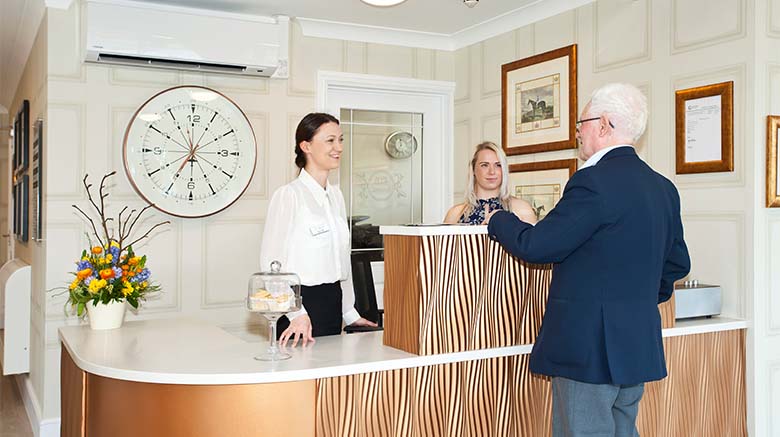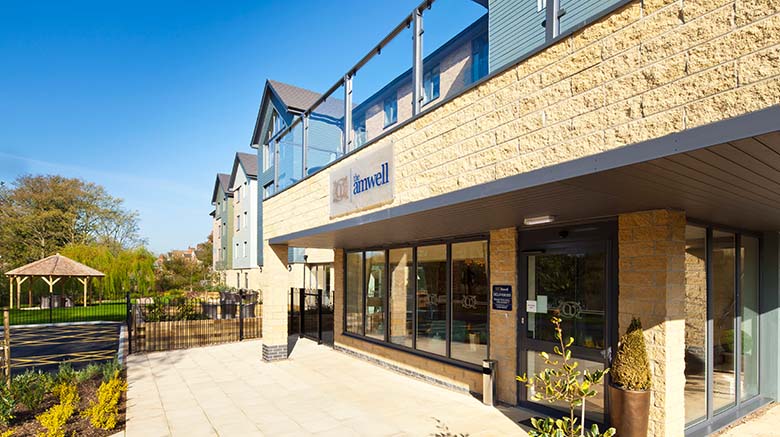How Much Do Care Homes Cost?

Around the UK, there are multiple different types of care homes that offer their own unique set of services. The average cost of care in the UK is one of the highest in Europe, which can cause a lot of stress to families thinking about a care home for their loved ones as they are unsure if they can afford to pay care home fees and want to know if there is additional financial support available.
Throughout this blog, we will look into the average costs of care in the UK, the different care types and the average care costs as well as what financial support services are available.

Care Homes and Their Fees
Each care home in the UK will structure its fees differently based on the type care and level of care they provide, as well as what else they include within the care package. Other factors including location, accessibility and facilities affect the cost of care. Some care homes offer a fixed rate that an individual pays each week or month however, there are others that offer a pay-as-you-go structure. Fees vary depending on the type of care needed and the type of care home an individual chooses to reside in.
It is important to understand that care home costs only cover the basic care services and some additional charges may apply for personal newspapers, beauty treatments and some social activities as examples. An individual usually pays for their own care costs, but in some cases, their loved ones are able to pay for care on their behalf.
Average Care Home Fees In The UK
Recent research shows that residential care tends to be more affordable than specialist options such as nursing or dementia care. The overall cost of care depends on the level of support needed, with more complex health requirements typically leading to higher fees.
Location is a large factor that influences how much a care home will cost, as well as other important factors. Residing in the South of England, especially in London, will be significantly more expensive compared to homes in the North West.
No two care homes are the same, and it is important to compare the facilities and fees within various different locations before making a final decision.
Residential Care Costs
In a residential home, a person’s accommodation, meals and personal care will be covered by the costs. Residential care is a suitable type of care for those that can mostly live independently, but require some additional support with daily activities such as washing, eating or getting dressed.
Nursing Care Costs
Nursing care is, on average, the most expensive type of care due to the high level of care being received. However, the cost for this does include accommodation, medication management and administration, meals and support services. Typically, residents in nursing homes would require care on a 24-hour basis and will become dependent on nurses, making this a more expensive type of care.
Respite Care Costs
Respite care is usually provided on a short-term basis and is typically for those recovering from an illness or surgery before returning to their own home, or when a loved one caring for someone with dementia needs a break from their 24/7 duties. Each care home will carry out a needs assessment to determine which type of care is needed for each individual, and the cost of this will depend of the level of care required.



What's Included In Care Home Fees
It is difficult to determine a baseline of what is included in care home fees, as this is variable and changes based on what the home offers to residents. Typically, the fees will cover meals and accommodation, as well as personal care and activities.
However, it is important to note each care home has its own fees and may charge for additional services so you should take the time to find out as much information as you can and compare these to other care homes so you can know precisely what you require and avoid paying care costs that aren't suitable for you or your loved one.
What Are All-Inclusive Care Home
All-inclusive care homes have been on the rise over the last few years, with the appeal relating to their flat fee and the services this includes. This as a whole is slightly more expensive than paying for a care home that isn’t all-inclusive, but it is the convenience that becomes attractive as it means someone pays for their care as well as has access to all other facilities and services offered within the home.
Having peace of mind about not having to pay unexpected costs can be reassuring for older individuals, especially in the current cost of living crisis. An all-inclusive way of life means you will pay one fee, which covers your care, accommodation, energy bills, support, and use of facilities and activities whilst you are in your new home.
Every care home offers unique care packages to residents, specifically tailored to their needs, so make sure to do your research. You may come across care homes that aren't suitable for you or your loved one, so it is important that you look around and find the best fit.
Who Should Be Paying For Care
Individuals residing in the care home usually pay for their own care fees, or it can be funded by their loved ones. Some people’s circumstances mean they aren't able to pay for care and therefore can seek funding from local authorities to support them or through NHS continuing healthcare funding. Social services will carry out a financial assessment to determine an individual's savings and assets, and then determine the savings threshold and whether they are eligible.
It’s recommended to speak to a financial advisor for you to understand if you or your loved ones would be able to afford the care fees, or if you would need to seek additional financial support.

Can I Get Help Towards Funding the Cost of My Care Home Fees?
After you have been means tested if the local authority deems you to be eligible, they will contribute towards the cost of your care.
If an individual requires a significant amount of medical care, they may be eligible for NHS Continuing Healthcare (CHC) funding. To find out if a person is eligible for CHC funding, they would need an assessment from a healthcare professional in order to progress with the application.
If the above does not apply to your personal circumstances, you can apply for a deferred payment agreement. This means that the local authorities will offer a loan towards the cost of care and in this time, the individual or their loved ones would sell some of their assets to pay back the local council.
Financial help isn't always guaranteed and some care homes don't accept funding support. Before visiting your chosen care homes, it is important to ask if they accept financial support.
What does Local Authority Funding Include?
Local authority funding is a term for the local council providing financial assistance towards care home or nursing home fees if an individual is unable to pay for it themselves. To check if you qualify for this funding, a means test is required, which is a financial assessment carried out to determine personal expenses allowance.
While funding from the local authority can usually cover basic care home services such as accommodation, meals, and support, it may not cover additional services or amenities. Individuals may have to pay for the use of facilities, social activities or transportation. Additionally, some care homes may require a top-up fee. This happens if the local authority funding does not cover the full cost of care, and will need to be topped up by the individual.
What Does NHS Funding Include?
NHS Continuing Healthcare (CHC) is a term to represent the NHS covering the costs of care or other healthcare-related expenses for the resident in a care home or nursing home.
A needs assessment will be carried by a team of medical professionals to see if individuals can qualify for full funding. The assessment will specifically look into an individual's key characteristics; The nature, complexity, intensity and unpredictability of one’s needs, this tends to be someone with a terminal illness, a severe disability or a long-term health condition that worsens over time.
Self-Funding Your Care Costs
If you are self-funding, you don't need any support from the NHS or local authority. This also makes you or your loved ones fully responsible for the cost of care and any additional services you require. It may be a viable option for those with savings or assets to cover the care costs or those who don’t meet the government-funded support eligibility criteria due to being over the threshold.
Care home fees can be dependent on a lot of factors, such as rhw size of the home, the location and the amenities provided. Making the decision to move into a care home is a significant financial commitment and will need to be carefully considered before making a final decision to ensure all costs are accounted for.



The Amwell Care Home
The Amwell Care Home is a luxury, all-inclusive care home situated in Melton Mowbray, Leicestershire. Our compassionate and dedicated team work tirelessly around the clock to ensure our residents live a rich and meaningful life by looking after healthcare needs as well as their mental, physical and emotional well-being.
Our care home offers high-quality accommodation and 24/7 care services for residents including Residential Care, Low-level Dementia Care and Respite Care. We offer our residents a first-class way of life with our person-centred approach to care and range of facilities and amenities.
Residents have free use over their day, including making use of our facilities whenever they wish to. On a daily basis, residents have access to our landscaped garden, salon, cinema room and varied activities programme.
We strive to make our residents’ lives as best they can be, supporting them during every step of their care journey and ensuring they are comfortable and fulfilled in a loving environment. We are proud to adopt an ‘all-inclusive’ way of living so that residents can make the most of each day doing whatever brings them joy, and our in-house facilities and activities programme helps to achieve that.
Get in Contact With a Member of Our Team Today
If you require any further information regarding the costs of care or any of our care options, please get in touch with a member of our friendly team. You can email us at admin@theamwellcare.com or call us on 01664 882525 to speak with a member of our team.





